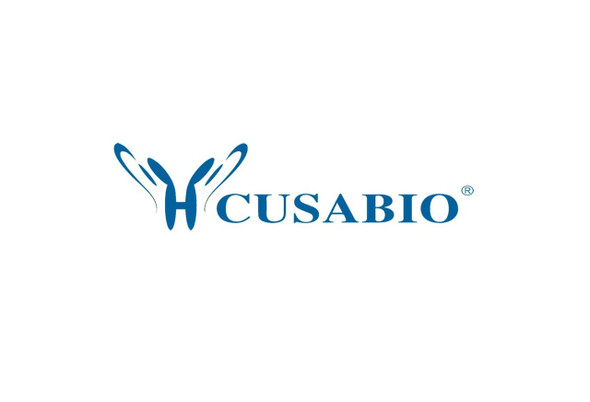Cusabio Active Proteins
Recombinant Human Platelet basic protein (PPBP) (Active) | CSB-AP000701HU
- SKU:
- CSB-AP000701HU
- Availability:
- 5 to 10 Working Days
Description
Recombinant Human Platelet basic protein (PPBP) (Active) | CSB-AP000701HU | Cusabio
Protein Description: Partial
Alternative Name (s) : PBP, Leukocyte-derived growth factor, LDGF, Macrophage-derived growth factor, MDGF
Gene Names: PPBP,CTAP3,CXCL7,SCYB7,TGB1,THBGB1
Research Areas: Immunology
Species: Homo sapiens (Human)
Source: E.Coli
Tag Info: Tag-Free
Expression Region: 59-128aa
Sequence Info: AELRCMCIKT TSGIHPKNIQ SLEVIGKGTH CNQVEVIATL KDGRKICLDP DAPRIKKIVQ KKLAGDESAD
Biological Activity: Fully biologically active when compared to standard. The biological activity determined by a chemotaxis bioassay using human peripheral blood neutrophils is in a concentration range of 1.0-10.0 ng/ml.
MW: 7.6 kDa
Purity: >97% as determined by SDS-PAGE and HPLC.
Endotoxin: Less than 1.0 EU/µg as determined by LAL method.
Relevance: LA-PF4 stimulates DNA synthesis, mitosis, glycolysis, intracellular cAMP accumulation, prostaglandin E2 secretion, and synthesis of hyaluronic acid and sulfated glycosaminoglycan. It also stimulates the formation and secretion of plasminogen activator by human synovial cells. NAP-2 is a ligand for CXCR1 and CXCR2, and NAP-2, NAP-2 (73) , NAP-2 (74) , NAP-2 (1-66) , and most potent NAP-2 (1-63) are chemoattractants and activators for neutrophils. TC-1 and TC-2 are antibacterial proteins, in vitro released from activated platelet alpha-granules. CTAP-III (1-81) is more potent than CTAP-III desensitize chemokine-induced neutrophil activation. {ECO:0000269|PubMed:10877842, ECO:0000269|PubMed:7890771, ECO:0000269|PubMed:8950790, ECO:0000269|PubMed:9794434}.
PubMed ID: 2713489; 1826003; 11468158; 14702039; 15815621; 15489334; 2423119; 15340161; 10877842; 6572368; 12665801; 77677; 8950790; 2783111; 2522778; 7890771; 2406364; 2007144; 9794434; 24275569; 8034022; 7706245
Notes: Repeated freezing and thawing is not recommended. Store working aliquots at 4℃ for up to one week.
Function: LA-PF4 stimulates DNA synthesis, mitosis, glycolysis, intracellular cAMP accumulation, prostaglandin E2 secretion, and synthesis of hyaluronic acid and sulfated glycosaminoglycan. It also stimulates the formation and secretion of plasminogen activator by human synovial cells. NAP-2 is a ligand for CXCR1 and CXCR2, and NAP-2, NAP-2 (73) , NAP-2 (74) , NAP-2 (1-66) , and most potent NAP-2 (1-63) are chemoattractants and activators for neutrophils. TC-1 and TC-2 are antibacterial proteins, in vitro released from activated platelet alpha-granules. CTAP-III (1-81) is more potent than CTAP-III desensitize chemokine-induced neutrophil activation.
Involvement in disease:
Subcellular Location: Secreted
Protein Families: Intercrine alpha (chemokine CxC) family
Tissue Specificity:
Paythway: Chemokinesignalingpathway
Form: Lyophilized powder
Buffer: Lyophilized from a 0.2 µm filtered PBS, pH 7.4
Reconstitution: We recommend that this vial be briefly centrifuged prior to opening to bring the contents to the bottom. Please reconstitute protein in deionized sterile water to a concentration of 0.1-1.0 mg/mL.We recommend to add 5-50% of glycerol (final concentration) and aliquot for long-term storage at -20℃/-80℃. Our default final concentration of glycerol is 50%. Customers could use it as reference.
Uniprot ID: P02775
Uniprot Entry Name: CXCL7_HUMAN
HGNC Database Link: HGNC
UniGene Database Link: UniGene
KEGG Database Link: KEGG
STRING Database Link: STRING
OMIM Database Link: OMIM









